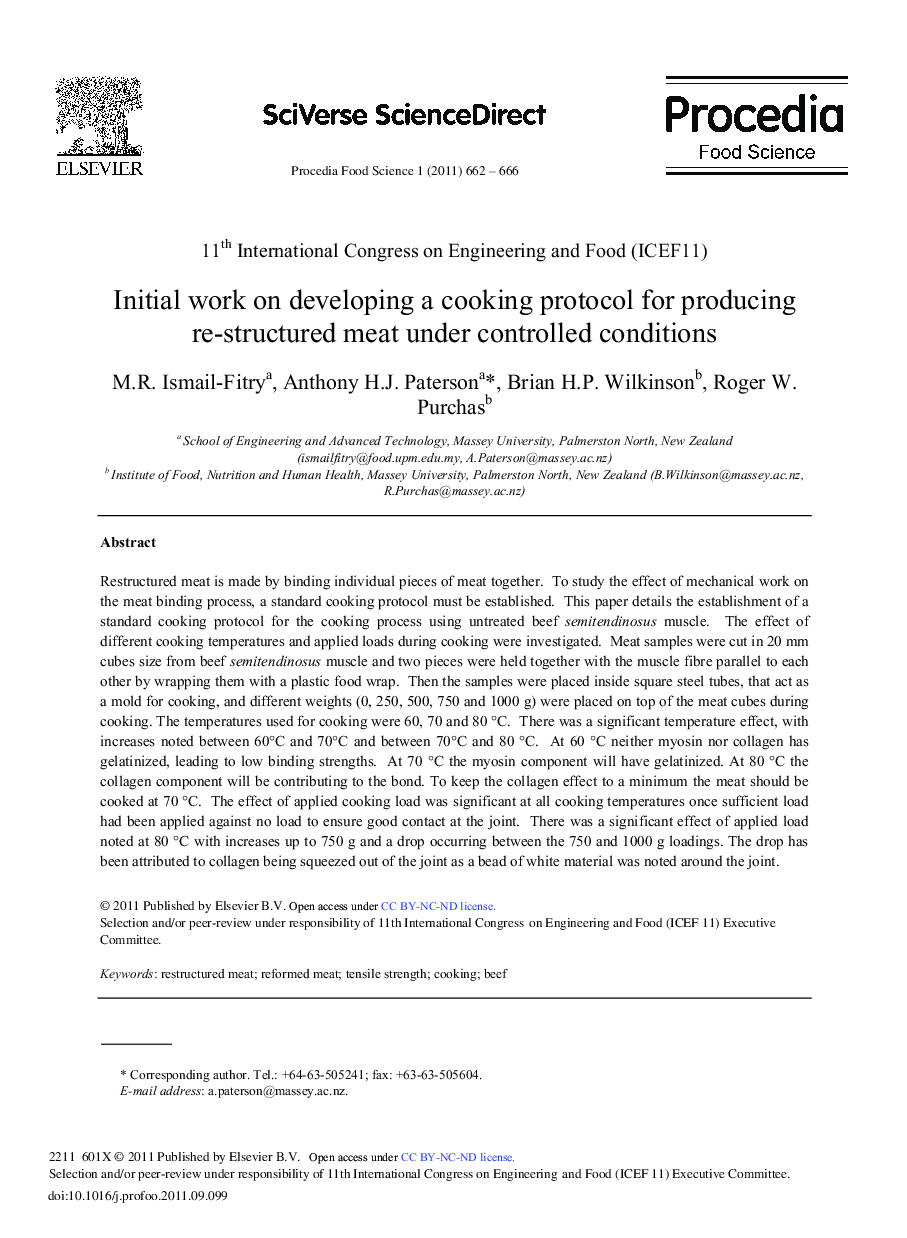| Article ID | Journal | Published Year | Pages | File Type |
|---|---|---|---|---|
| 1265007 | Procedia Food Science | 2011 | 5 Pages |
Restructured meat is made by binding individual pieces of meat together. To study the effect of mechanical work on the meat binding process, a standard cooking protocol must be established. This paper details the establishment of a standard cooking protocol for the cooking process using untreated beef semitendinosus muscle. The effect of different cooking temperatures and applied loads during cooking were investigated. Meat samples were cut in 20 mm cubes size from beef semitendinosus muscle and two pieces were held together with the muscle fibre parallel to each other by wrapping them with a plastic food wrap. Then the samples were placed inside square steel tubes, that act as a mold for cooking, and different weights (0, 250, 500, 750 and 1000 g) were placed on top of the meat cubes during cooking. The temperatures used for cooking were 60, 70 and 80 °C. There was a significant temperature effect, with increases noted between 60 °C and 70 °C and between 70 °C and 80 °C. At 60 °C neither myosin nor collagen has gelatinized, leading to low binding strengths. At 70 °C the myosin component will have gelatinized. At 80 °C the collagen component will be contributing to the bond. To keep the collagen effect to a minimum the meat should be cooked at 70 °C. The effect of applied cooking load was significant at all cooking temperatures once sufficient load had been applied against no load to ensure good contact at the joint. There was a significant effect of applied load noted at 80 °C with increases up to 750 g and a drop occurring between the 750 and 1000 g loadings. The drop has been attributed to collagen being squeezed out of the joint as a bead of white material was noted around the joint.
